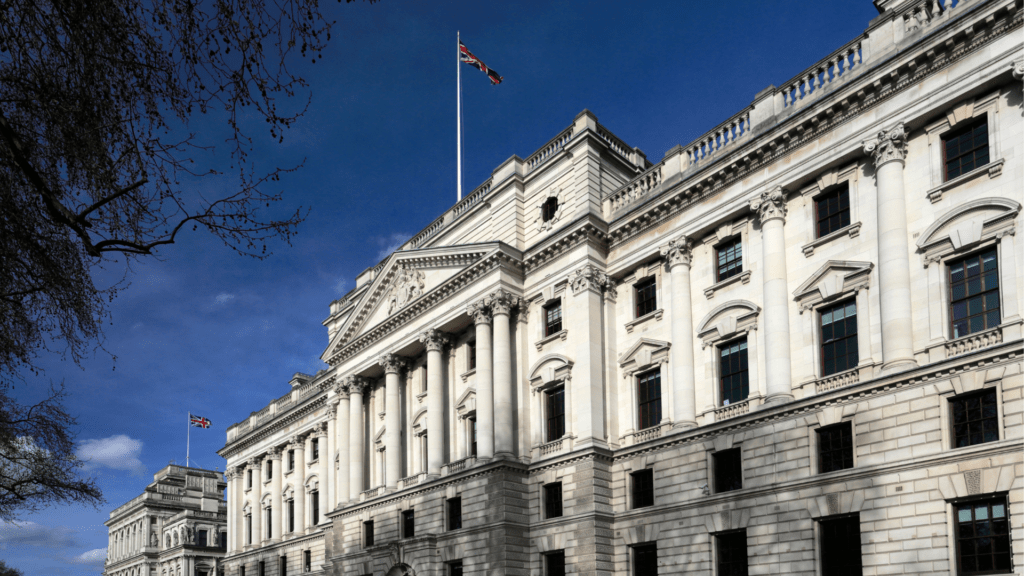In an era defined by rapid technological advancement, the intersection of artificial intelligence (AI) and national security has become increasingly crucial. The recent publication of a comprehensive report by The Alan Turing Institute underscores the pivotal role AI is set to play in shaping future decision-making processes within the realm of national security.
Authored jointly by the Joint Intelligence Organisation (JIO) and Government Communication Headquarters (GCHQ), and supported by the Centre for Emerging Technology and Security (CETaS), this report sheds light on the transformative potential of AI in bolstering intelligence analysis and assessment. It emphasises the capacity of AI tools to discern patterns, trends, and anomalies beyond human capability, thereby enhancing the efficiency and accuracy of data processing—a capability indispensable in safeguarding the interests of the United Kingdom.
The information used for this blog was sourced using GOV.UK.
However, alongside its promise, AI also introduces new dimensions of uncertainty and risk. As AI becomes increasingly integrated into intelligence workflows, it is imperative to recognise and mitigate potential biases and challenges. The report underscores the necessity of comprehensive guidance for those entrusted with national security decision-making, emphasising the importance of continuous monitoring, evaluation, and human oversight to counteract inherent biases and uncertainties.
Moreover, the report advocates for proactive measures to ensure responsible and safe utilisation of AI-enriched intelligence. This entails additional training and upskilling initiatives targeting intelligence analysts and strategic decision-makers, aimed at fostering trust and competence in navigating the complexities introduced by AI technologies.
Crucially, the report aligns with ongoing governmental efforts to position the UK as a global leader in AI adoption across the public sector. Initiatives such as the Generative AI Framework for HMG underscore the commitment to harnessing AI safely and effectively, while recent events such as the AI Safety Summit further highlight the government’s dedication to fostering dialogue and collaboration in this domain.
The Deputy Prime Minister Oliver Dowden said:
“We are already taking decisive action to ensure we harness AI safely and effectively, including hosting the inaugural AI Safety Summit and the recent signing of our AI Compact at the Summit for Democracy in South Korea.
“We will carefully consider the findings of this report to inform national security decision makers to make the best use of AI in their work protecting the country.”
Dr Alexander Babuta, Director of The Alan Turing Institute’s Centre for Emerging Technology and Security said:
“Our research has found that AI is a critical tool for the intelligence analysis and assessment community. But it also introduces new dimensions of uncertainty, which must be effectively communicated to those making high-stakes decisions based on AI-enriched insights. As the national institute for AI, we will continue to support the UK intelligence community with independent, evidence-based research, to maximise the many opportunities that AI offers to help keep the country safe.”
Anne Keast-Butler, Director GCHQ said:
“AI is not new to GCHQ or the intelligence assessment community, but the accelerating pace of change is. In an increasingly contested and volatile world, we need to continue to exploit AI to identify threats and emerging risks, alongside our important contribution to ensuring AI safety and security.”
In recent years, many CEOs have found themselves operating in survival mode. Economic uncertainty, rapid technological change, talent challenges and shifting customer expectations have created a
Cybersecurity is no longer just an IT issue, in 2026, it’s a core business risk. For UK organisations of all sizes, cyber threats have become more frequent, more
Artificial Intelligence has rapidly moved from being a futuristic concept to becoming one of the most influential forces shaping modern business. Almost every sector is now
Winning more business is no longer just about a better pitch. It is about how easy you are to work with, how quickly you
Digital transformation has been one of the most overused business terms of the last decade. Yet for all the talk, many organisations still struggle
For many organisations, achieving Cyber Essentials marks a valuable milestone. It protects against the most common cyber threats, reassures clients and insurers, and establishes
The unseen side of the internet Most business leaders are familiar with the internet they use every day: websites, emails, social platforms, and cloud
The IT Gap: When “Good Enough” Isn’t Enough Many small and medium-sized businesses rely on traditional IT support to keep things running. It’s a
4th Platform Partners with WatchGuard to Deliver FireCloud: Stronger Security, Less Effort Protect every worker, everywhere 4th Platform has partnered with WatchGuard to bring
The recent cloud outage at AWS, which caused downtime, data unavailability and shaken confidence, is a timely wake-up call for organisations of every size.


















